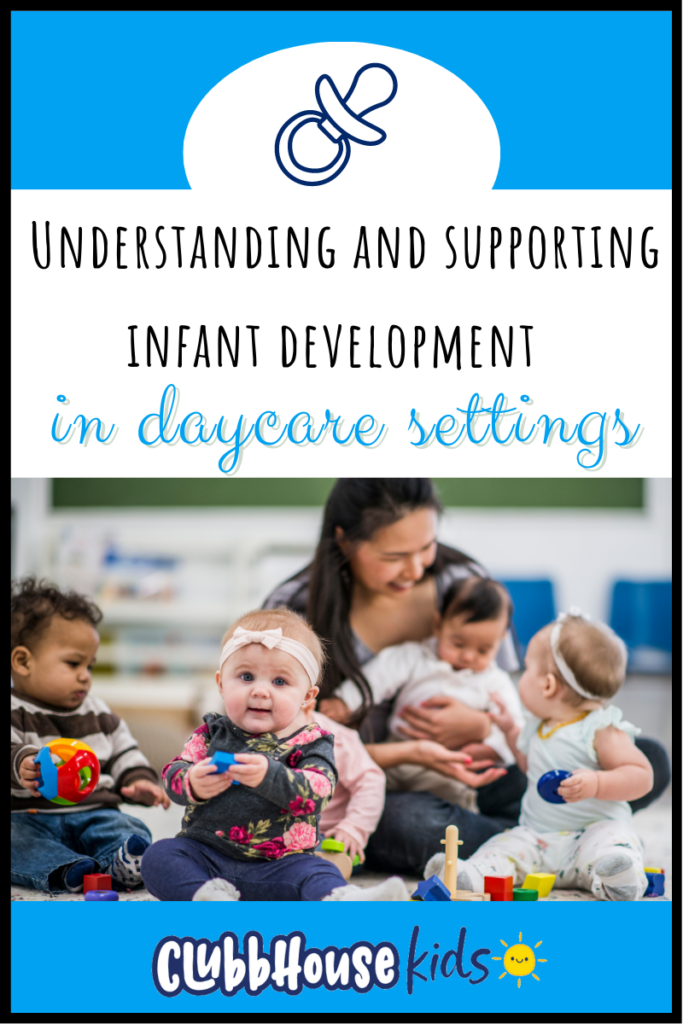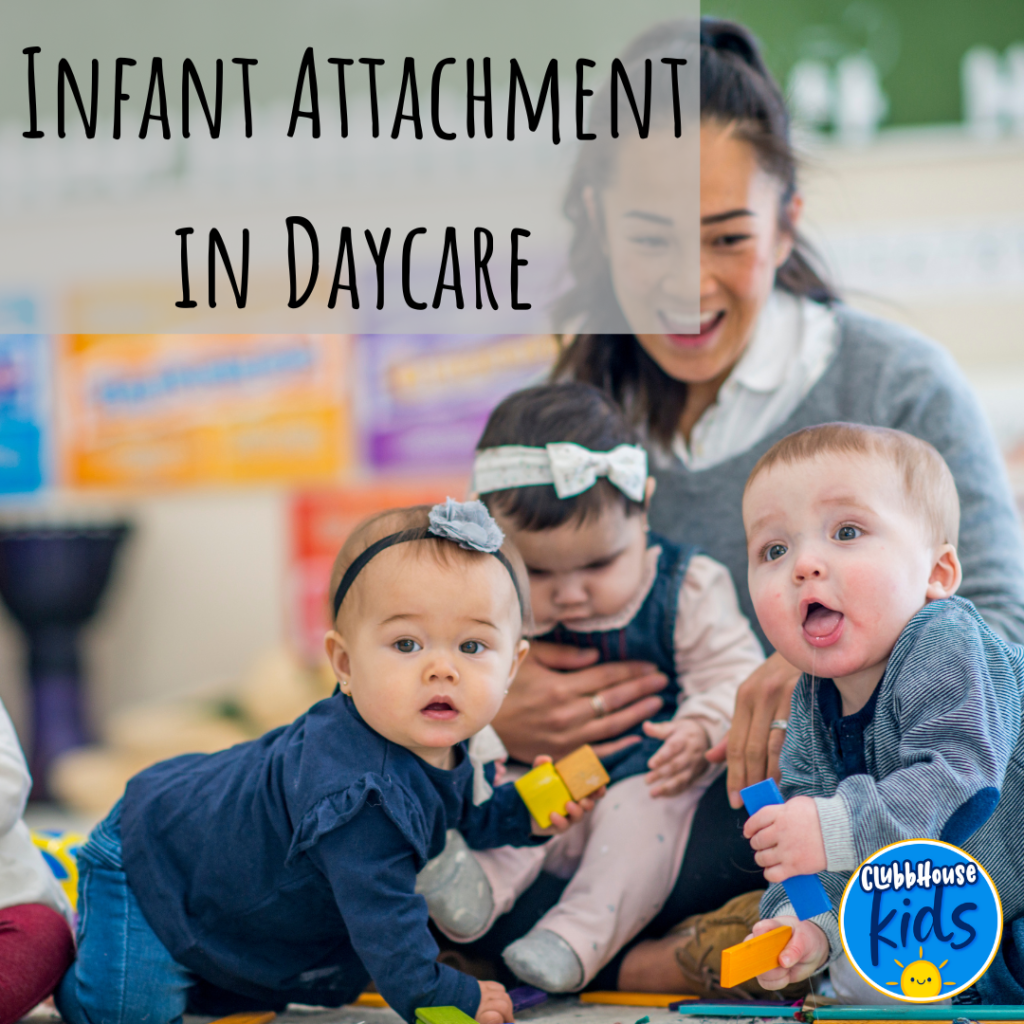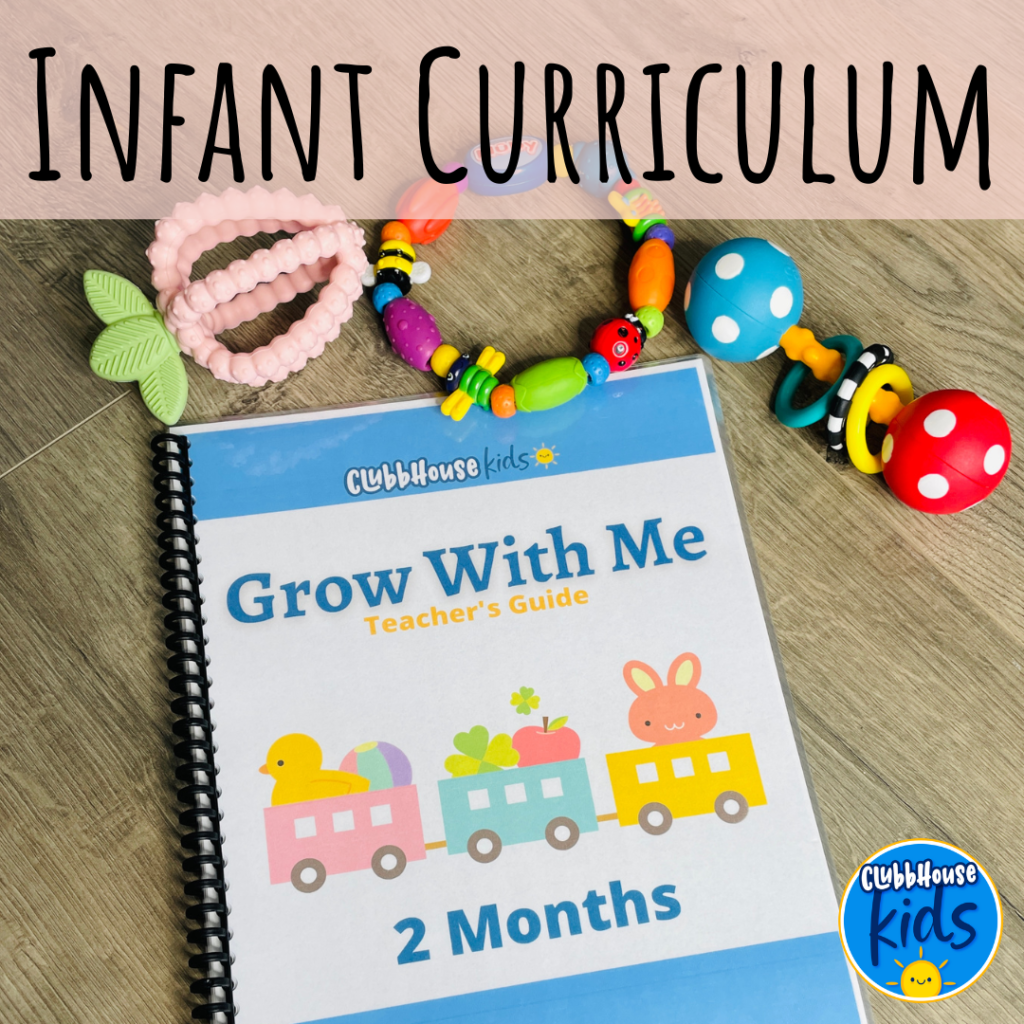Understanding and Supporting Infant Development in Daycare Settings
Daycare providers must ensure the best care for infants, as their infant development is crucial for future growth. Infants are learning and growing rapidly. Providing them with the right resources and environment to support them, you’ll witness rapid growth as they reach significant milestones!
This blog post will discuss when babies should start daycare, attachment, infant feeding patterns, infant sleep patterns, and things to consider before enrolling young infants into care. We will also introduce Grow with me—a free infant curriculum with activities to meet milestones for the littlest students in your care.

When Should Babies Start Daycare?
In America, infants can start attending daycare at six weeks old. However, a range of considerations is considered before making this decision.
- Parental leave policies vary between employers and often present limited choices for parents needing to transition back into the workplace.
- Is it feasible to rely on your family members for extended childcare assistance while you navigate the early months of parenthood?
- Financial obligations come in all shapes and sizes. Every family is unique, with different needs for managing their finances.
Attachment With Infants
As a caregiver, providing an attachment bond with your infant students can help ensure the development of essential skills in their growth and maturity. When your little one feels safe and loved, it can help them form strong emotional regulation skills, self-esteem, trust in others, and an eagerness to learn – all essential components for future success!
Think of attachment as the foundation of a house- if the foundation is strong, meaning the baby feels secure, all other parts of the house- regulating, sense of self, trust, and eagerness to learn, can experience optimal development.
Fostering healthy attachment:
- Embrace them through touch, holding, and cuddling.
- When babies cry, make sure to respond; doing so demonstrates that you are attentive to their needs and will always be there for them.
- Being mindful during shared moments, such as making eye contact builds trust in the provider-infant relationship.

Infant Feeding & Sleep Patterns
Infants require adequate nutrition and should be fed on demand. As there is no set schedule for babies aged 2 months and below, responding swiftly to their hunger needs is essential. To ensure a smooth adjustment for the baby and yourself, make sure the infant is accustomed to drinking from a bottle before starting childcare.
To promote efficient digestion in these little ones, hold them close during feedings and always burp in between!
Sleep is an essential part of infant development. By sleeping 15-16 hours a day, babies are able to process experiences, and through this impulse, their brains construct knowledge. Simply put, sleep builds a baby’s brain.

Things To Consider Before Enrolling Young Infants Into Care
Before enrolling infants in care, providers need to consider a variety of pros and cons:
- There is a HUGE need- many daycares do not enroll young infants, so this would be an advantage to your program.
- Infants require a lot of one-on-one attention- you would have limited enrollment. Licensed providers ratios vary from state to state, but generally, you see a commercial ratio for infants of 1:4 and home providers ratio of 1:3.
- Because of limited enrollment, you would need to charge higher tuition to be able to run your program successfully.
- Infant care can be time-consuming and requires loads of patience.
- An understanding that first-time parents are going through a period of adjustment and extra patience is required as they navigate this new role in their life.
Somethings to ask yourself before enrolling young infants into your program:
- Am I patient enough to care for young infants?
- Am I sensitive to a baby’s needs?
- Do I understand child development stages?
- Do I have the time to provide for an infant in my program?
If you’re considering enrolling infants, I’ve got a great resource that’s proven invaluable in helping me make caring for infants easier and more fulfilling!
Infant Curriculum
“Grow with me” offers an exciting, comprehensive curriculum for infants up to one year of age. This program is tailored to the eight developmental areas: cognitive, fine motor, gross motor, sensory-motor integration, and speech/language skills. Providing delightful activities created just for your littlest students! Get familiarized with this “Grow With Me’s” engaging resource before enrolling infants into your care. This way, you can ensure faster progress toward developmental milestones without compromising on fun or enjoyment!

Infants In Daycare
Working with 2-month-old infants in daycare is truly a rewarding experience. To foster a nurturing and enriching environment, remember to provide them with the warmth and security they need for growing curiosity about their world! With patience and dedication, you can help these little ones explore life’s wonders at their own pace.
Check out my Grow with Me YouTube Playlist if you found this blog post helpful. Here you will find videos for each month of an infant’s first year. I provide helpful tips and activities to enrich their infant development.
Head to the provider’s main page for more great tips and help create your dream childcare program.

I just started teaching infants/babies in the nursery school, I am
Watching your videos in you tube and found you here in Pinterest, I am amazed from all the things that you do… how can I get the copy of this “grow with me book” from birth to toddlers thank you.
Thankyou very much for your kind words. Here’s a link to the free infant curriculum. Enjoy!
https://www.teacherspayteachers.com/Product/Baby-Learning-Activities-4793241